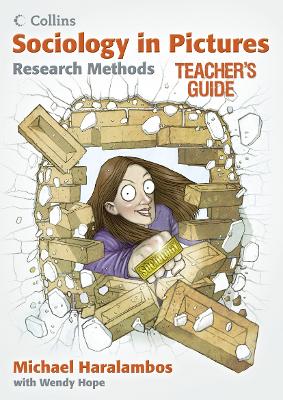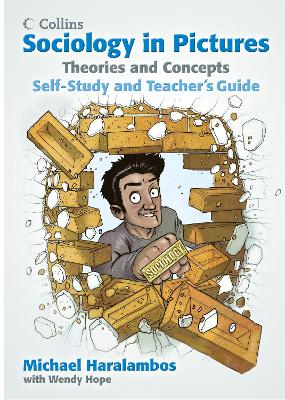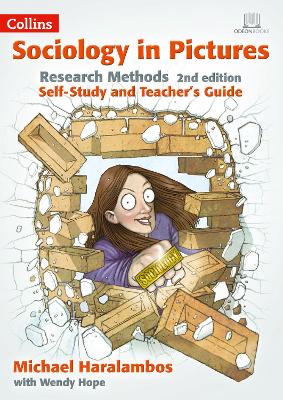Sociology in Pictures
3 total works
The Teacher Guide provides a series of questions and suggested answers for each of the topics in the student book. The Guide also includes background information on the topics- quotes from author/s of the research, further material on the methods used in the study and general information on the research findings.
Sociology in Pictures: Research Methods is a fresh and exciting publication based on styles from graphic novels and comics. The Teacher Guide provides a series of questions and suggested answers for each of the topics in the student book. These can be used for individual work, group work or class discussions, for homework or for self study. The Guide also includes background information on the topics- quotes from author/s of the research, further material on the methods used in the study and general information on the research findings.
Contents
1. Participant observation
2. Gaining entry
3. Acting normally
4. Street corner society
5. Observations in context
6. Ethnography
7. Types of interviews
8. Interview effects
9. Social desirability effects
10. Interviews with context
11. Questionnaires
12. Answering questions
13. Sampling methods
14. Response rates
15. Types of data
16. Experiments
17. Correlation
18. Testing hypotheses
19. Multiple causes
20. Case studies
21. Longitudinal studies
22. Official statistics
23. Statistics are important
24. Documents
25. Exchanging notes
26. Reliability and validity
27. Social facts
28. Social construction
29. Positivism and interpretivism
30. Starting out
31. Choosing a topic
32. Mixed methods
33. Triangulation
34. Research ethics
35. References
Sociology in Pictures: Theories and Concepts Self-Study and Teacher Guide provides a series of questions and suggested answers for each of the topics in the student book. It includes an evaluation of each theory and concept and, where appropriate, a short biography of major sociologists.
Sociology in Pictures: Theories and Concepts is a fresh and exciting publication based on styles from graphic novels and comics. The Self-Study and Teacher Guide provides a series of questions and suggested answers for each of the topics in the student book. These can be used for individual work, group work or class discussions, for homework or for self study. The Guide also includes an evaluation of each theory and concept and, where appropriate, a short biography of major sociologists.
Contents
1. Culture
2. Social control
3. Marxism
4. Alienation
5. Emile Durkheim
6. Anomie
7. Functionalism
8. Functions of religion
9. Max Weber
10. Rational action
11. Stratification
12. The Chicago School
13. Symbolic interactionism
14. Interaction processes
15. Acting the part
16. Ethnomethodology
17. Phenomenology
18. Feminism
19. Gender
20. Michel Foucault
21. Pierre Bourdieu
22. Postmodern society
23. Late modernity
24. The second modernity
25. Liquid modernity
26. Globalisation
27. The network society
28. The reinvention society
29. Common sense
30. References
A companion book, Sociology in Pictures: Theories and Concepts Self-Study and Teacher's Guide, is also available.
The Self-study and Teacher Guide provides a series of questions and suggested answers for each of the topics in the student book. These can be used for individual work, group or class discussions, homework or self-study. The Guide also includes background information on the topics including information on the research findings.
The second edition of Sociology in Pictures: Research Methods is a fresh and exciting publication based on styles from graphic novels and comics. The Self-study and Teacher Guide provides a series of questions and suggested answers for each of the topics in the student book. These can be used for individual work, group work or class discussions, homework or self study. The Guide also includes background information on the topics - quotes from author/s of the research, further material on the methods used in the study and general information on the research findings.
New topics in the second edition include:
* Reflexivity, objectivity, values and research, standpoint theory, assessing validity, constructing data
* Online research - participating online, online interviews, virtual world interviews, online surveys
* Further methods - non-participant observation, focus groups, operationalisation, visual methodologies.


